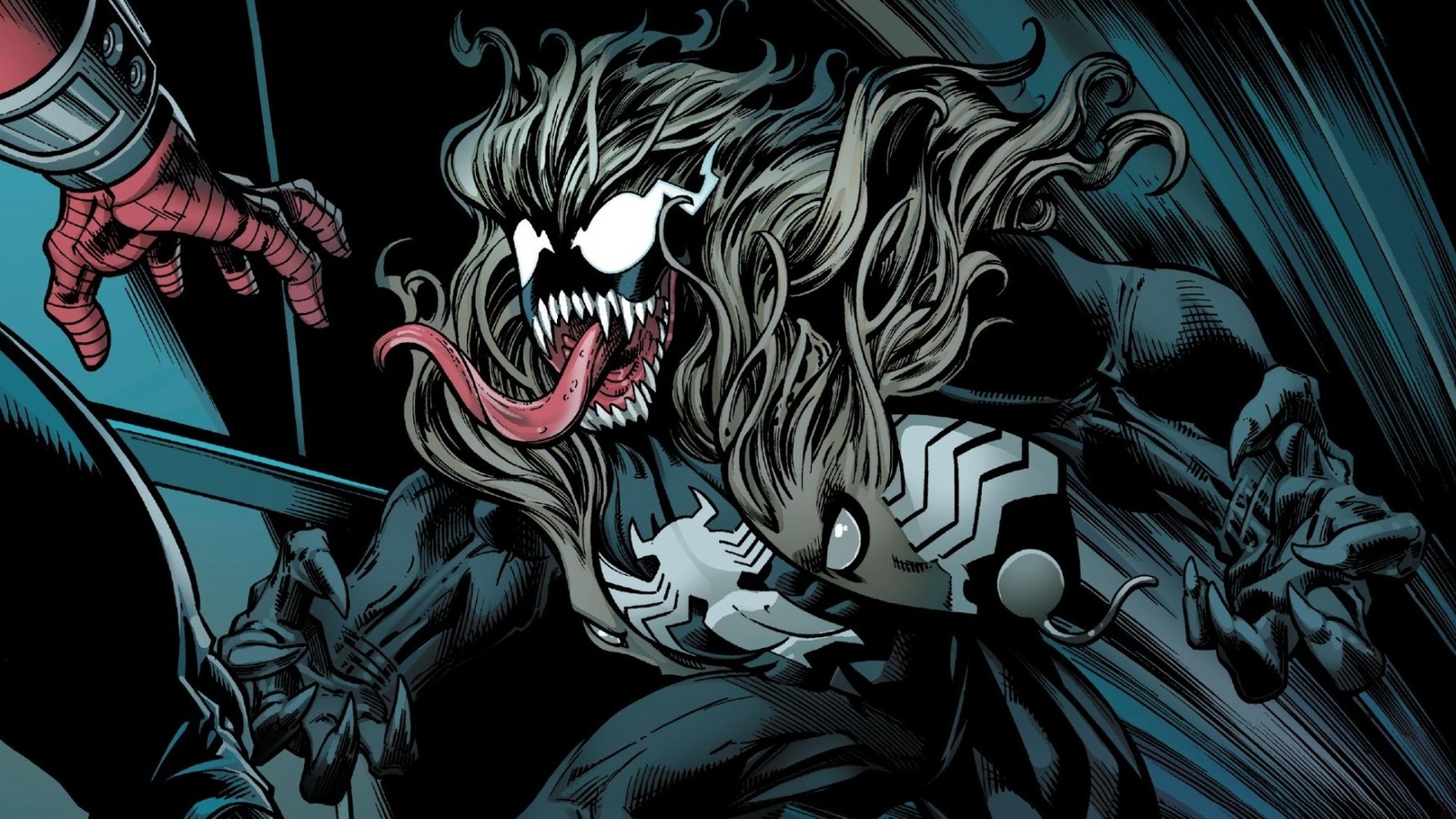

“Kraven’s Last Hunt” is a six-issue Spider-Man story from 1987, running simultaneously across the three ongoing “Spider-Man” titles at the time (yes, three: “Amazing Spider-Man, “Peter Parker, The Spectacular Spider-Man,” and “Web of Spider-Man”). All six issues, though, were written by J.M. DeMatteis and drawn by Mike Zeck.
Kraven, feeling his age and still no closer to defeating Spider-Man, concludes he’ll never best his prey with his hands — so he finally decides to use a rifle instead. After trapping Spider-Man, shooting him, and burying him, Kraven decides to wear Spider-Man’s costume and fight criminals himself, feeling his victory will only be complete by being a better Spider-Man. Of course, Spider-Man isn’t actually dead and crawls out of the grave. Shortly after, Kraven uses the same rifle to end his own life. This ending was so audacious that Kraven actually stayed dead for 22 years of publication.
DeMatteis had been pitching a story about a villain “defeating” a hero for a while (one version would’ve featured Batman and the Joker, which ultimately became “Going Sane” in 1994). The story became about Spider-Man and Kraven by chance. DeMatteis happened on a Marvel Universe encyclopedia and discovered, to his delight, that Kraven was Russian. In the 2006 foreword to “Kraven’s Last Hunt,” DeMatteis wrote:
“Why should that excite me so? One word: Dostoevsky. When I read “Crime And Punishment” and “The Brothers Karamazov” in high school, they seeped in through my brain, wormed their way down into my nervous system … and ripped me to shreds. No other novelist has ever explored the staggering duality of existence, illuminated the mystical heights and the despicable depths of the human heart, with the brilliance of Dostoevsky. The Russian soul, as exposed in his novels, was really the Universal Soul. It was my soul … In an instant, I understood Sergei Kravinov.”
“Kraven’s Last Hunt” is “Crime and Punishment.” In Dostoevesky’s novel, protagonist Raskolnikov (a poor Russian student living in a hovel) breaks into a woman’s apartment and murders her. He does it for money, yes, but also to satisfy curiosity and to prove himself a superior being who can take life and escape punishment. Instead, he spends the rest of the story plagued by anxiety, fearful of being caught, and decides that only confession and justice can clean that Russian soul of his.
Like Raskolnikov, Kraven “murders” someone to prove his own superiority; in Chapter 5 (“Amazing Spider-Man” #294), he explains that he only drugged Spider-Man so that he could see firsthand Kraven bested him, and then live with the knowledge that he would have died if Kraven had deemed it so. DeMatteis adds human depth to why Kraven hunts the most dangerous game, writing him as the child of Russian nobles driven out during the October revolution. In a world without culture, he instead found his life hunting in the jungle.
Being bested by Spider-Man over and over has turned the hero into more than just a man in Kraven’s fragile mind. “The Spider” is “the demon that brought Russia to ruin… that destroyed my father; consumed my mother,” and it personifies all of Kraven’s fears. He fatalistically knows his death will come, but he dreads meeting it before he can defeat “The Spider” and restore his honor as a warrior and aristocrat.

Leave a Reply